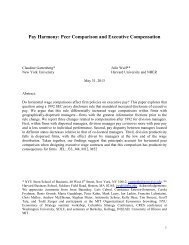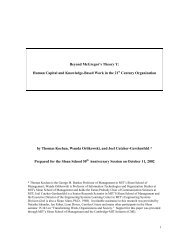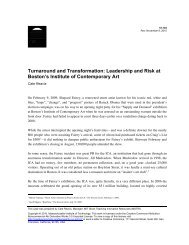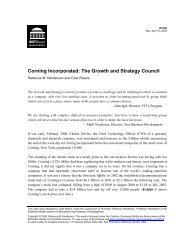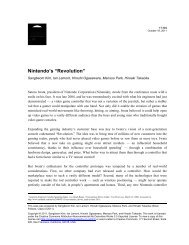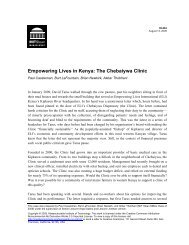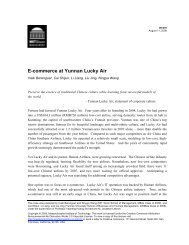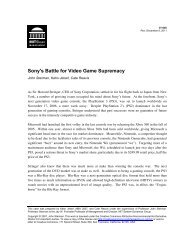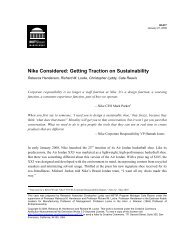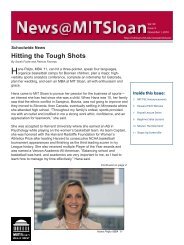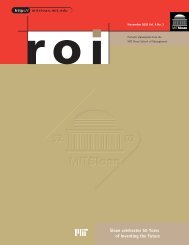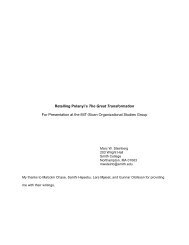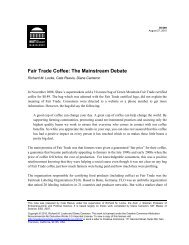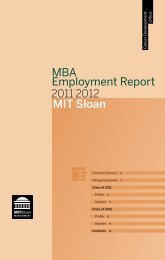Understanding earnings quality - MIT Sloan School of Management
Understanding earnings quality - MIT Sloan School of Management
Understanding earnings quality - MIT Sloan School of Management
Create successful ePaper yourself
Turn your PDF publications into a flip-book with our unique Google optimized e-Paper software.
firms identified in the AAERs than control firms, but Beneish (1999) does not find this relation for<br />
his sample <strong>of</strong> manipulation firms.<br />
The aforementioned papers interpret the correlation between leverage and <strong>earnings</strong><br />
management as evidence that debt covenants provide incentives for firms to manage <strong>earnings</strong>, but<br />
they do not examine debt covenants specifically. 46 Subsequent research tested the debt covenant<br />
hypothesis using data on specific debt covenants. Sweeney (1994) provides evidence that firms<br />
make income-increasing accounting choices as they move closer to violating debt covenants.<br />
DeFond and Jiambalvo (1994) find that working capital accruals and a measure <strong>of</strong> abnormal<br />
accruals are both higher in the year prior to the year that a firm reports a covenant violation in its<br />
annual report. In the year <strong>of</strong> violation, the accruals are high after controlling for management<br />
changes and audit qualifications. Using a comprehensive sample <strong>of</strong> detailed debt covenants, Dichev<br />
and Skinner (2002) show that an unusually large (small) number <strong>of</strong> loan quarters have financial<br />
measures at or just above (below) covenant thresholds, consistent with the debt covenant hypothesis.<br />
In contrast, DeAngelo et al. (1994), discussed previously, find relatively little difference between<br />
accruals for firms with and without binding covenants.<br />
While the conclusion is that firms closer to covenants, measured directly or indirectly, are<br />
more likely to manage <strong>earnings</strong>, the implications <strong>of</strong> the conclusion for our assessment <strong>of</strong> <strong>earnings</strong><br />
<strong>quality</strong> are ambiguous. On the one hand, the fact that <strong>earnings</strong> are managed opportunistically<br />
generally implies that the <strong>earnings</strong> are less reliable. On the other hand, the mechanisms used to<br />
manage <strong>earnings</strong> under the debt covenant hypothesis are typically accounting method choices that<br />
46 Zimmer (1986) shows that accounting choice is related to leverage even in the absence <strong>of</strong> debt covenants using a<br />
sample <strong>of</strong> Australian firms. Specifically, he finds that higher leverage is associated with interest capitalization (incomeincreasing),<br />
but the significance is eliminated when he controls for whether firms use project-specific financing. He<br />
interprets this as evidence that leverage does not capture covenants but rather that it is correlated with type <strong>of</strong> financing<br />
used by companies.<br />
84



